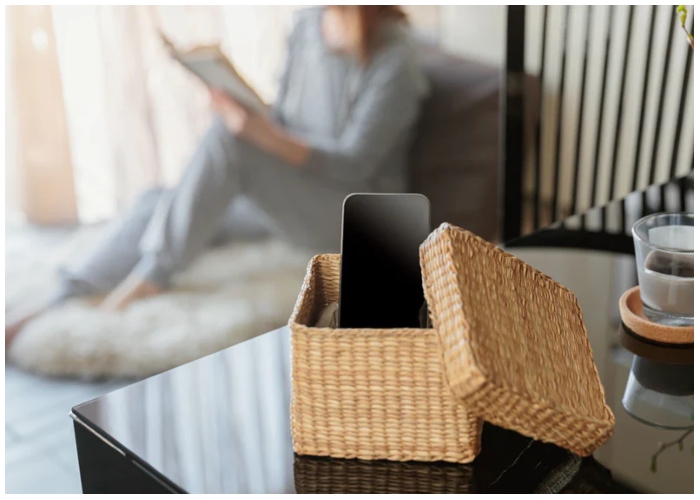We live in an age of constant pings, endless scrolls, and never-ending updates. From social media to streaming services, the modern world is built to hijack our attention. Amid this overstimulation, living with intention has become a rebellious act. It’s about taking back control and choosing what truly matters instead of getting swept up in the noise.
The Cost of Constant Distraction
Every notification, pop-up, and mindless scroll comes with a cost—your attention. And attention is a finite resource. When you’re constantly interrupted, you lose the ability to think deeply, connect meaningfully, and act deliberately. Multitasking feels productive, but it often leads to doing more things poorly.
Living reactively—responding to everything as it comes—can also create a false sense of urgency. You end up spending your time on other people’s priorities instead of your own. Over time, this contributes to stress, anxiety, and burnout. Repeatedly dividing your focus also weakens your ability to stay present and undermines your long-term goals. The mental fog that comes from distraction isn’t just about productivity—it’s about how you experience life itself.
Reconnect with Your Core Values
Intentional living starts with identifying what’s most important to you. What do you value? What kind of person do you want to be? If you don’t know your values, you’re more likely to be pulled in every direction.
Take time to reflect on what brings you peace, joy, and purpose. Write these things down. Use them as a compass to guide your decisions—what to say yes to, and just as importantly, what to say no to. When your daily actions align with your core values, you feel more fulfilled, and your energy isn’t wasted on things that don’t matter. This clarity becomes a powerful filter for everything you do.
Create Boundaries with Technology
You don’t need to throw your phone in the ocean to live more intentionally. But you do need to use technology, instead of letting it use you. Set app limits. Turn off non-essential notifications. Keep your phone out of reach during meals, conversations, and creative work.

Consider doing regular digital detoxes, even if they’re short. One hour a day. One day a week. The goal is to reclaim quiet and space for your thoughts. Those moments of stillness are where clarity lives. Replace passive screen time with activities that reenergize you—like reading, walking, or journaling. You’ll begin to notice that your attention span improves and your anxiety levels drop.
Be Present on Purpose
Mindfulness isn’t just for meditation—it’s a powerful tool for everyday life. Practice being fully present in what you’re doing, whether it’s drinking your coffee, walking your dog, or talking with a friend.
When you’re present, you experience more joy and less regret. You remember more, react less, and build stronger relationships. Try grounding techniques like focusing on your senses or taking three deep breaths before shifting tasks. Practicing presence in mundane moments teaches your brain that this moment is enough. It brings color back to everyday life.
Simplify Your Commitments
An overcrowded calendar is a fast track to burnout. If everything is important, nothing is. Review your obligations and ask: Does this align with what I value? Am I doing this out of guilt or joy?
It’s okay to step back from things that no longer serve you. Give yourself permission to do less—but better. Quality beats quantity when it comes to how you spend your time and energy. When you simplify, you leave space for spontaneity, rest, and things that truly nourish your life. You’ll also perform better in the areas you’ve consciously chosen.
Curate What You Consume
Your mental diet matters as much as your physical one. Be selective about the media, people, and content you consume. Choose books, podcasts, and conversations that inspire you. Limit exposure to content that drains or distracts you.
Be especially mindful of doom-scrolling and comparison traps. If you find yourself feeling worse after being online, it’s a sign to reset your feed—or take a break altogether. You can also schedule consumption windows during the day rather than grazing endlessly. This turns passive consumption into a mindful choice and gives you back control.
Build Daily Rituals
Rituals create rhythm and stability. They anchor your day and remind you of your priorities. This could be a morning walk, a mid-day meditation, or writing down three things you’re grateful for at night.
These habits, when practiced regularly, help reinforce intentionality. They signal to your brain what matters and create opportunities for reflection in an otherwise chaotic day. Even tiny rituals—lighting a candle before dinner, stretching after work—can ground you and elevate your day with meaning.
Intentional Living Is a Practice
You won’t get it perfect—and that’s okay. Intentional living is less about rigid rules and more about conscious choices. It’s the practice of pausing before reacting, questioning before committing, and noticing when you’re being pulled away from your path.
Over time, these choices shape a life that feels more aligned, more meaningful, and more your own. In a world built to distract, your attention is your greatest asset. Use it wisely, and you can build a life that reflects who you truly are—not just what the world demands you to be.
Small moments of intention, stacked consistently, create a powerful life. You don’t have to escape modern life—you just have to learn to navigate it on your terms. That’s where real freedom lives.